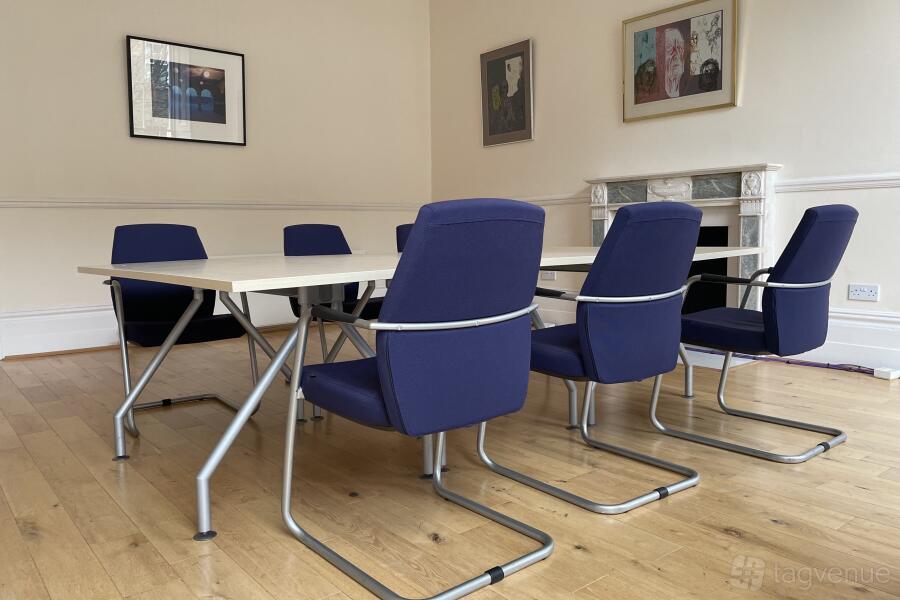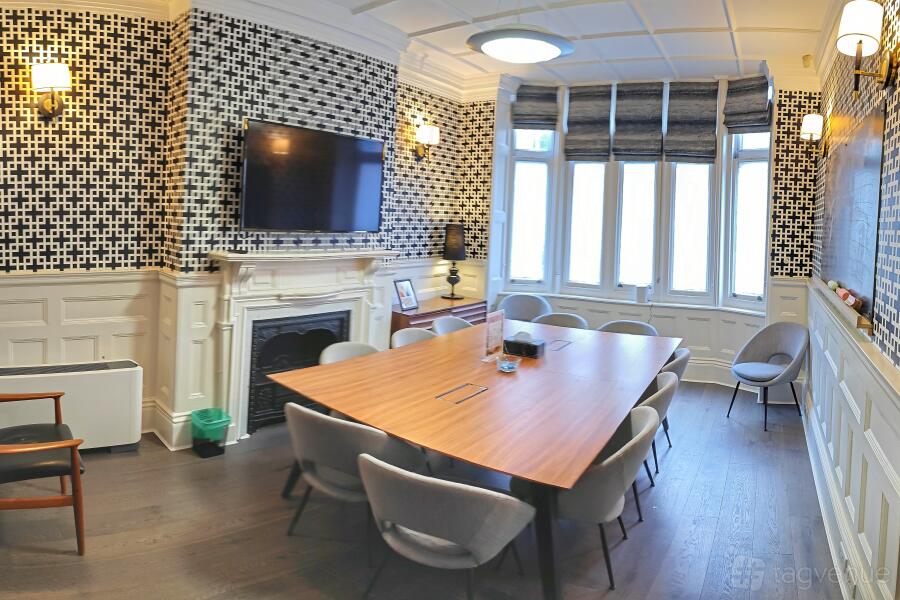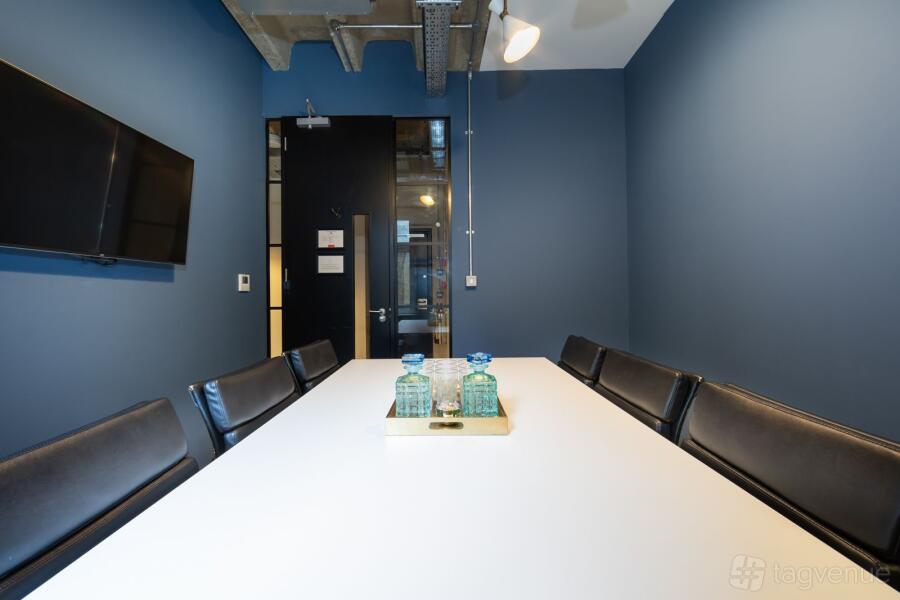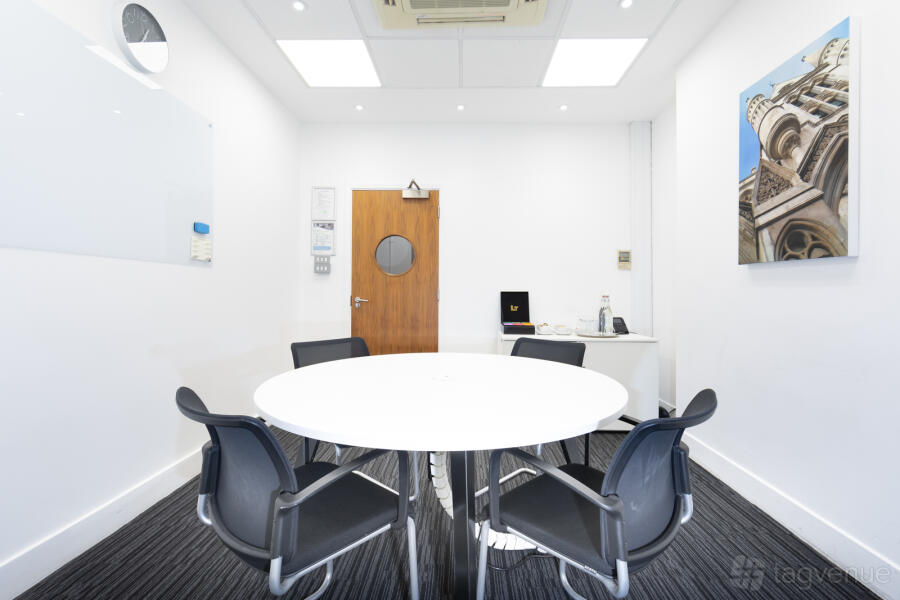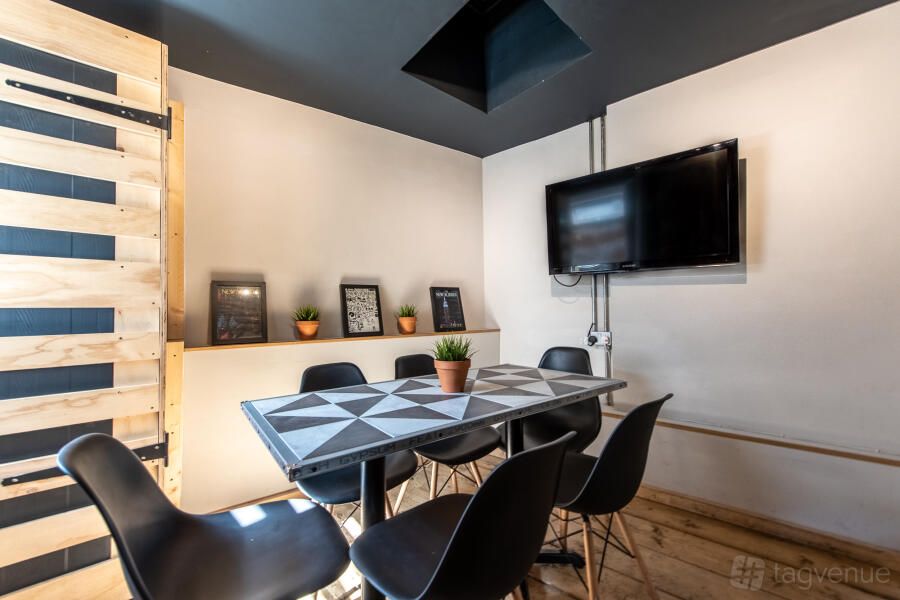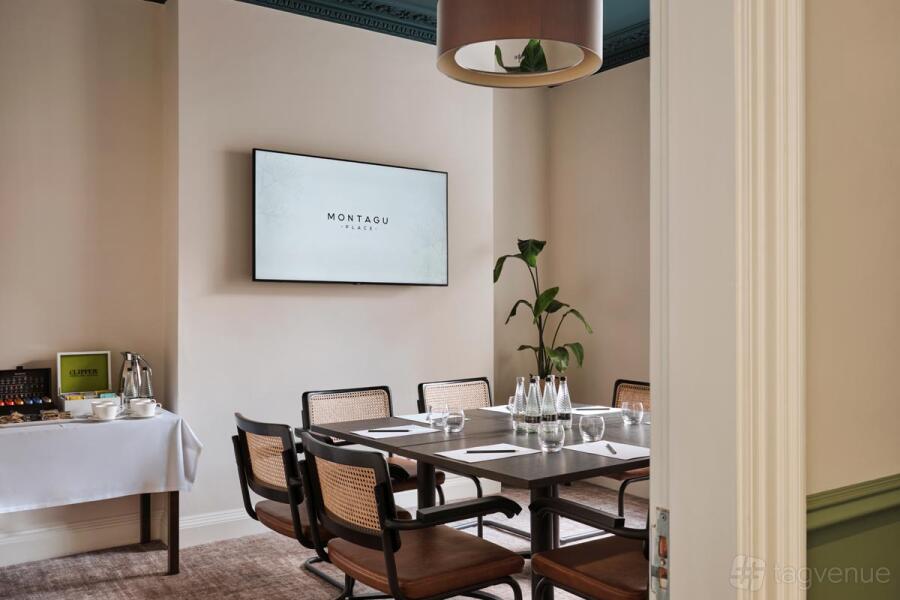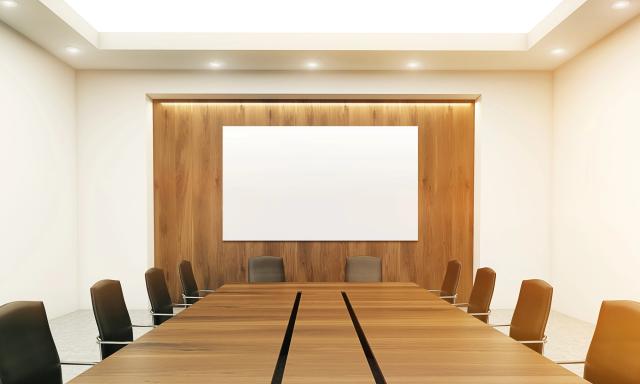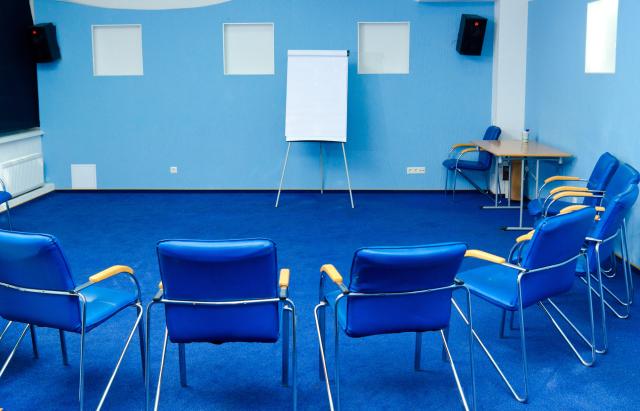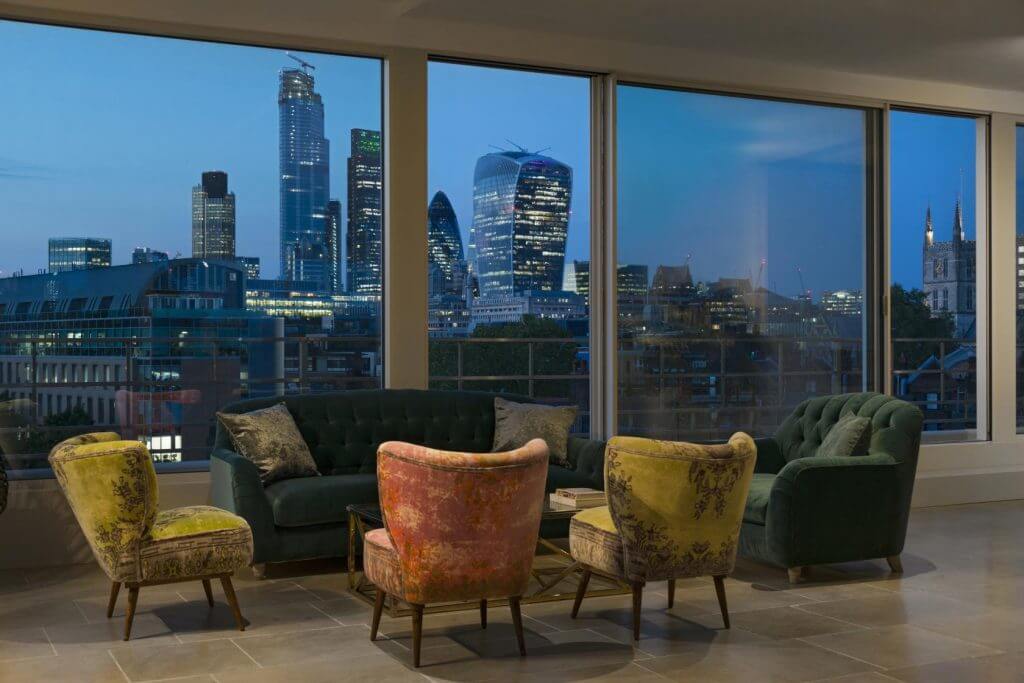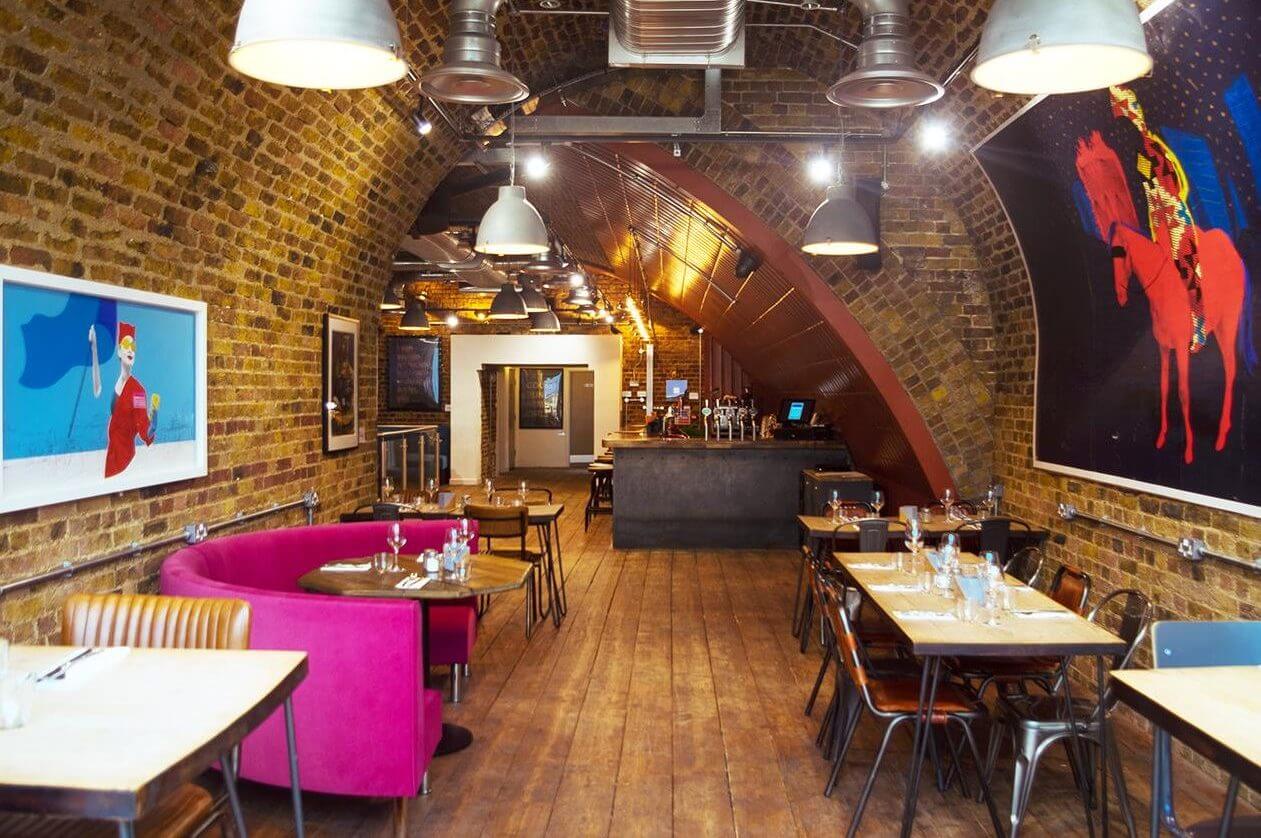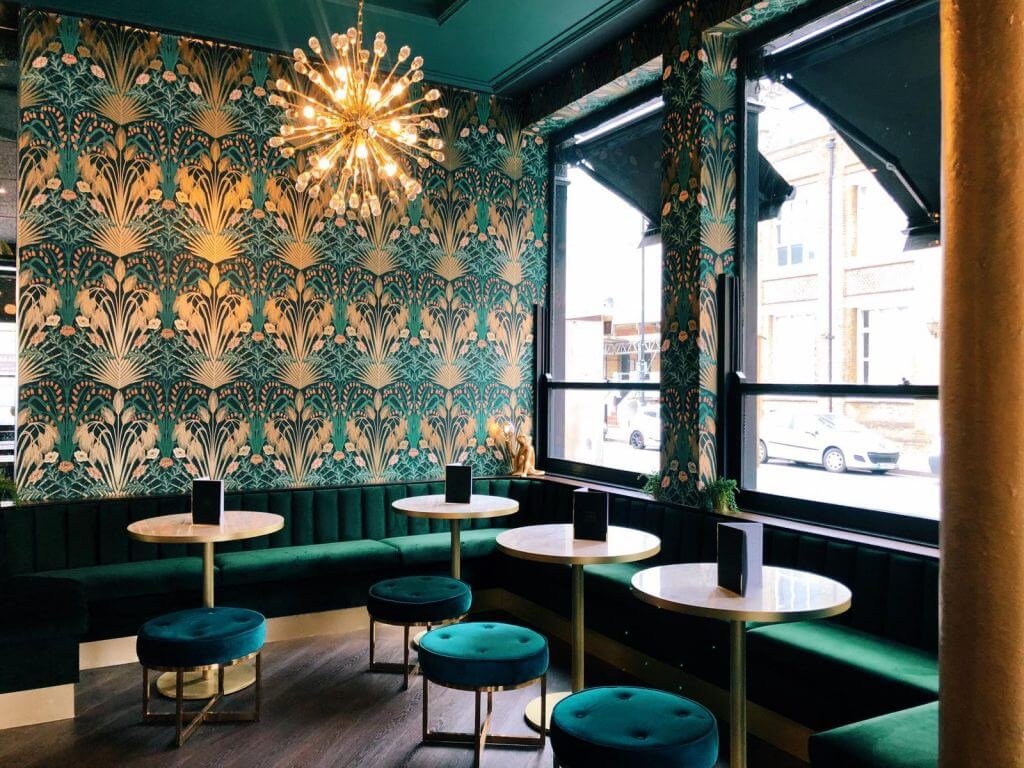Top Meeting Rooms in London
London is filled with meeting rooms and spaces for professional gatherings of all sizes. From meeting rooms in Mayfair to co-working spaces in Canary Wharf, cafes in Clerkenwell, pubs with function rooms in Kensington, or restaurants with private rooms in Chelsea and beyond – your options are endless. Explore our platform to discover venues, compare prices, and snag the perfect spot hassle-free. What are you waiting for? Your ideal London meeting room is only a few clicks away. Start your search today!
-
from £27
hire fee / per hourBook nowMeeting Room
8 guestsElectric MarketingChancery Lane StationHolborn, London#Supervenue
AAntonia A.
“This is our favourite meeting venue in London, and we frequently book this venue as and when we need to.” -
from £60
hire fee / per hourBook nowCREO, Meeting Room 1
8 guestsMary Sheridan HouseLondon Bridge StationSouthwark, London#Supervenue
AAmber S.
“Gorgeous venue, great for customer meetings or team building events. Will definitely be booking again.” -
from £60
hire fee / per hourBook nowMeeting Room Classic
12 guests54 Welbeck St W1G 9XSBond Street StationMarylebone, London#Supervenue
SSd
“Location Would like to see the Classic room next time as this was fully booked for our meeting.” -
from £70
hire fee / per hourBook nowMeeting Room 2
6 guestsThe Space Liverpool StLiverpool Street StationCity of LondonAA G.
“A perfect Location and that I can book the meeting rooms by the hour” -
from £30
hire fee / per hourBook nowFrequency Large Meeting Room
6 guestsFrequency Kings CrossKing's Cross St. Pancras StationSt Pancras, London#Supervenue
CCaroline G.
“Convenient location. Easy to book. Lovely meeting room.” -
from £57
per person / per dayBook nowMadrid
4 guests83 Victoria StreetSt. James's Park StationWestminster, London#Supervenue
KKaren C.
“Great venue for meetings. Clean, well resourced and quiet. I have already re-booked.” -
from £30
hire fee / per hourBook nowMeeting Room in near Waterloo
6 guestsThe Travel Cafe WaterlooLambeth North StationSouth Bank, London#Supervenue
HHeather H.
“Great little find. Was a last minute booking for meeting room. Easy to find.” -
from £30
hire fee / per hourBook nowFrequency Meeting Room
4 guestsFrequency Kings CrossKing's Cross St. Pancras StationSt Pancras, London#Supervenue
IIsobel L.
“The room is in a nice, central location and great for those who need a quiet space to work/host meetings.” -
from £50
hire fee / per hourBook nowMeeting Room
8 guestsMontagu Place HotelMarylebone StationMarylebone, London#Supervenue
EEmily N.
“Nice, helpful staff. Really good venue for a professional but warm meeting. Location also great.” -
from £588
minimum spendBook nowMeeting Room Offers
40 guestsUncommon Liverpool StreetLiverpool Street StationCity of LondonBBen B.
“Good room set up with great wifi and AV equipment for video meetings.” -
from £60
hire fee / per hourBook nowMeeting Room 1
6 guestsPaddington WorksEdgware Road Bakerloo StationPaddington, London#Supervenue
SSandro D.
“Friendly and helpful staff Great location Perfect room for meeting and videoconferencing” -
from £35
hire fee / per hourBook nowMeeting Room (Room C)
15 guestsKennington Space HireKennington StationLambeth, London#Supervenue
SStewart D.
“I would highly recommend the Slade Room for a small business meeting of 6-12 people.”
- 1
- 2
- 3
- ...
- 177
Popular filters
Capacity
Budget
Area type
Venue type
Catering and drinks
Accessibility features

FAQs about Top Meeting Rooms in London
In London, prices of meeting rooms average around £66 hire fee per hour. The exact costs depend on the room size, audiovisual equipment (such as projectors or microphones), or high-speed Wi-Fi. Additional services, such as catering or on-site coordinators, may cost extra. Flexible configurations for presentations, workshops, or networking, along with amenities such as parking or dedicated breakout rooms, will also affect the price. See usual price ranges in London, based on Tagvenue data, as of February 2026:
| From £40 | to £90 | hire fee per hour |
| From £65 | per person | |
| From £326 | to £588 | hire fee per event |
Based on the popularity and user ratings on Tagvenue (updated February 2026), the best options include:
-
Meeting Room at Electric Marketing in Holborn - rated 4.9/5
Our user said: ‘This is now our go to meeting room in London. Fabulous location, great price and facilities. Cannot fault.’ -
CREO, Meeting Room 1 at Mary Sheridan House in Southwark - rated 4.9/5
Our user said: ‘Perfect venue, very convenient for London Bridge Train/Tube. Lovely décor and bright meeting room.’ -
Meeting Room Classic at 54 Welbeck St W1G 9XS in Marylebone - rated 4.7/5
Our user said: ‘Meeting room itself was grand and tea for the room was charged at £6, would book again.’
You'll find meeting rooms in various sizes, from smaller spots to larger venues; keep in mind that the type of space and your chosen layout will affect the capacity! Below you can see the typical venue sizes in London, together with the standard prices in each size range, based on Tagvenue data (February 2026):
| Small | up to 5 guests | prices average £44 hire fee per hour |
| Medium | between 10 and 15 guests | prices average £84 hire fee per hour |
| Large | over 20 guests | prices average £90 hire fee per hour |
These are the venues within 0.8 mi from central London, available to book on Tagvenue:
-
Madrid at 83 Victoria Street
on 83 Victoria Street - 0.4 mi from centre.
Our user said: ‘I was actually in London Meeting room so did not see Madried but have no issues there either.)...’ -
Abbey Room at Broadway House
on Tothill Street Westminster - 0.5 mi from centre.
Our user said: ‘Great location, really helpful staff, easy to book and good facilities.’ -
Meeting Room in near Waterloo at The Travel Cafe Waterloo
on 139 Westminster Bridge Road - 0.8 mi from centre.
Our user said: ‘Excellent room for a meeting, would definitely book again. Thank you...’
Meeting rooms are in high demand in several key areas, particularly airports and financial districts. Spots in proximity to Gatwick, Heathrow, and City Airport are in high demand. Business districts such as Soho, Kings Cross, Victoria, Shoreditch, and Covent Garden are also popular meeting locations.
The hourly hire fee for meeting rooms in London usually includes only the use of the meeting room space for one hour and the use of available equipment on site, such as tables, chairs, whiteboards, flipcharts, projectors, and Wi-Fi. The per person price generally includes the use of the meeting room space as well as onsite equipment and refreshments or access to the common kitchen.
Located in the vibrant area of Brick Lane, close to Liverpool St and Aldgate East Station, this meeting and conference room at Meeting Room Brick Lane is an excellent venue for gatherings. The venue can accommodate up to seven people, providing ample space for intimate discussions and collaborative work. The hire fee starts from £17 per hour, a competitive price that does not compromise on quality, making it an attractive option for businesses and organisations looking for a professional yet affordable venue for their events.
Large Meeting Room at The Society Building in Fitzrovia is just a short distance from Goodge Street Station. It offers two spacious meeting rooms, each accommodating up to 12 people. These rooms are well-equipped with Zoom AV and conferencing facilities, ensuring seamless virtual connectivity for remote participants. The meeting package at The Building Society is affordable and costs just £7 per person.
-
Mercure London Paddington is a modern meeting space situated right next to Paddington Station, which is directly connected to Heathrow Airport. The meeting room is located inside the Mercure London Paddington Hotel, so it’s perfect for conferences with attendees travelling from outside of London.
- Regent’s Events is located between Baker Street Station and Regent’s Park Station, this large conference room can be reached from Heathrow Airport in only 30-40 minutes. It can accommodate up to 80 guests, and it is ideal for team workshops, company away days, and board meetings, with a breakout area available on-site.
- Space in Marylebone is a versatile meeting room located near Edgware Road Station and Marylebone Station. It can be reached from Heathrow Airport in only 30 minutes and is ideal for interviews and training sessions.
Your Guide to Hiring Meeting Rooms in London
Whether you’re getting together to brainstorm, problem-solve, or build relationships, the right room is essential to the success of your event. Perhaps you’re after a professional interview space in the city centre, a breakout room for a team-building session, or maybe a seminar room with a view of central London? No matter what you have in mind, you will discover extensive options. We recommend exploring online venue marketplaces to find meeting rooms that match your needs.
Types of Rooms for Meetings in London
You can make the most of your meeting by nailing your key objectives early and planning your event with your goal in mind. But before you get into the details of your bookings, why not check out the top types of spaces for your next event:
- Quirky Rooms - Some of the hottest trends include choosing one-of-a-kind, unusual, or alternative spaces. These unique spaces will generate interest among your attendees and make great talking points.
- Green Events in Eco-Friendly Venues - Green venues filled with eco-friendly touches like recycled paper and fair trade catering should pique your interest, especially if you’re organising an event or meeting related to sustainability.
- Co-Working Spaces - Co-working spaces are a good alternative for those looking for cheap and affordable meeting spots in London.
- Rooms with a View - Organising a meeting in a room with a view (especially from skyscrapers) offers a unique luxury setting that will make your gathering epic.
- Boardrooms - Boardrooms are perfect for formal meetings like interviews, client presentations, or senior team catch-ups. If you want something polished, Westgate House in Farringdon has smart 10- to 12-person rooms that feel professional without being too corporate. They're perfect for teams who need to get things done without distractions. These spaces work well for small business teams, consultants, or even job interviews.
- Conference Rooms in London - If you're organising a talk, workshop, or training session, you’ll need more space. Crypt on the Green in Clerkenwell fits up to 300 people and has a flexible layout, good for presentations with slides or group discussions. Conway Hall in Holborn is another favourite with great acoustics, often used for public talks and community events.
- Small Meeting Spaces in London - Places like The Travel Cafe Lounge in Waterloo or Frequency Kings Cross are great for that. They’re cosy, affordable, and meant for 2–6 people. People use these for team check-ins, tutoring sessions, freelance meetings, or even Zoom calls in peace. If you're after a casual but functional space, these are a solid bet.
Tips for Making your Event a Success
While there are many things you can do to make your meeting in London successful, we recommend focusing on a few essential elements that are guaranteed to make it seamless and productive:
- Boost engagement - Try incorporating video conferencing, live polling, and pre- and post-event web content. Platforms like Mentimeter or Slido can be invaluable in making long presentations engaging.
- Use event technology - Event organisers can now choose from dedicated event apps with real-time social media integration, special keynote webcasts, touchscreen screen technology, and virtual options (Zoom, Google Meet, Microsoft Teams, etc.).
For more information on organising a successful meeting, check out our handy meeting planning checklist.
Can I Book a Meeting Room For Just A Few Hours?
That’s what most people do. You can book by the hour and there is absolutely no need to commit to a full day. Lots of places like Montagu Place Hotel in Marylebone or Meeting Room Brick Lane let you book just 2-3 hours for a quick session. Prices start around £18 per hour and go up depending on size and location.
So whether it’s a team huddle, a pitch, or just some focused time away from the kitchen table, there’s a room for it and you can book it as easily as grabbing a coffee.
People also search for
Meeting Rooms in nearby suburbs
Meeting Rooms in other cities
Event planning ideas in London
Page last updated in February 2026
To provide you with relevant information, our pages are refreshed using an algorithm that aggregates real-time data, including bookings, reviews, and venue updates.
